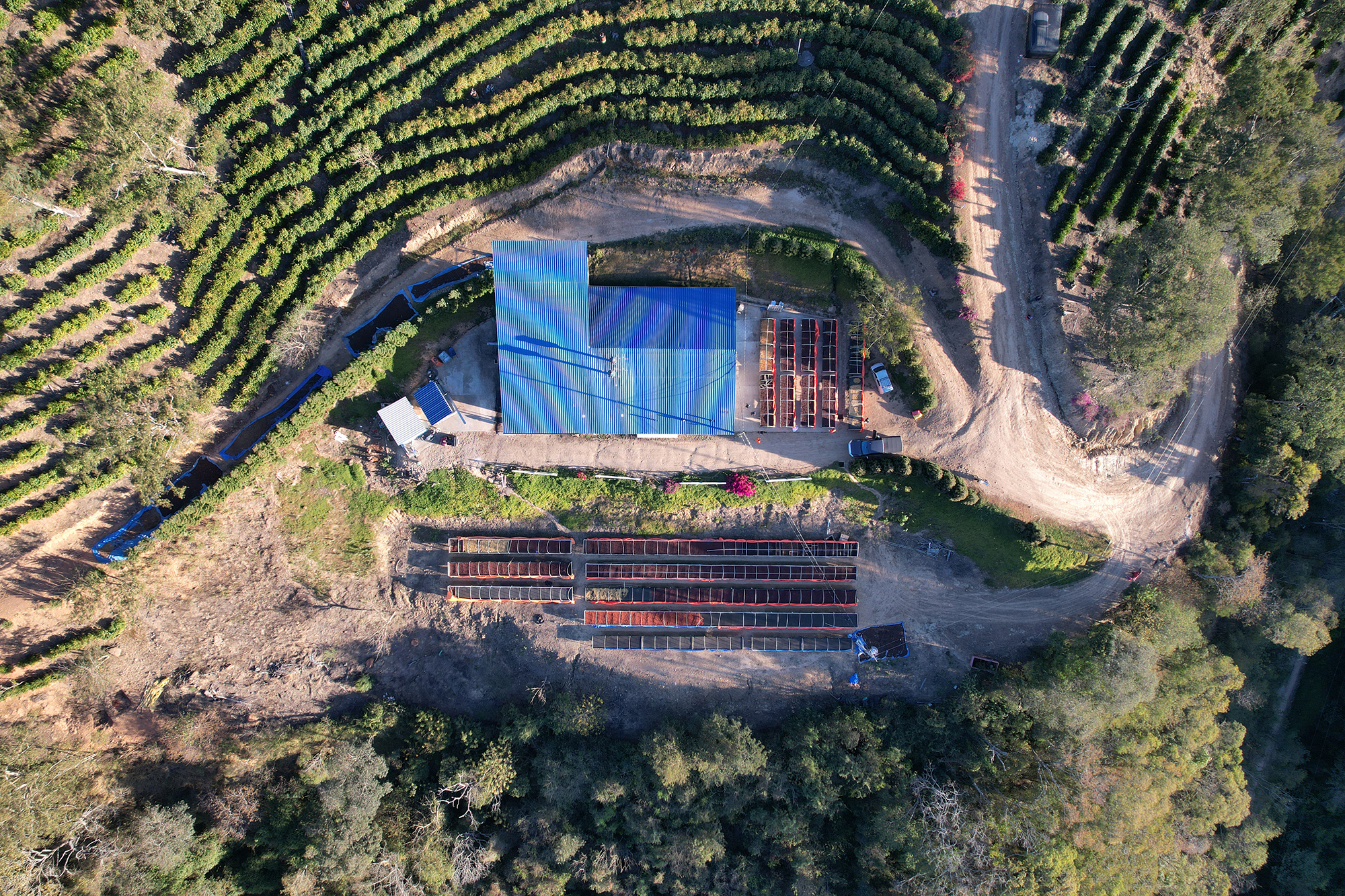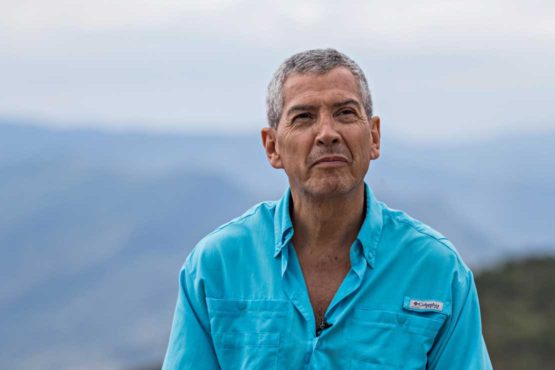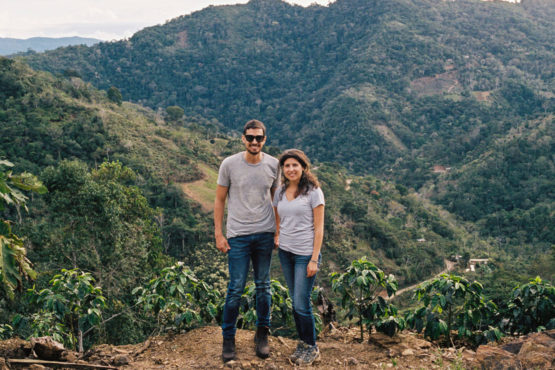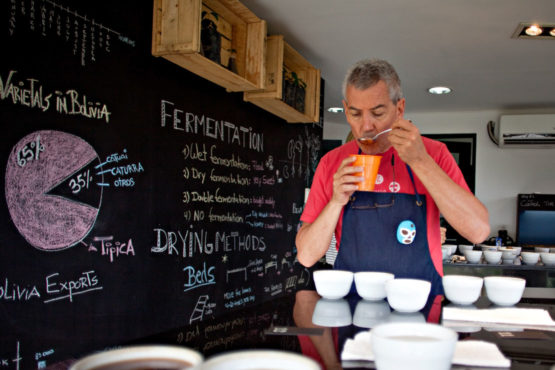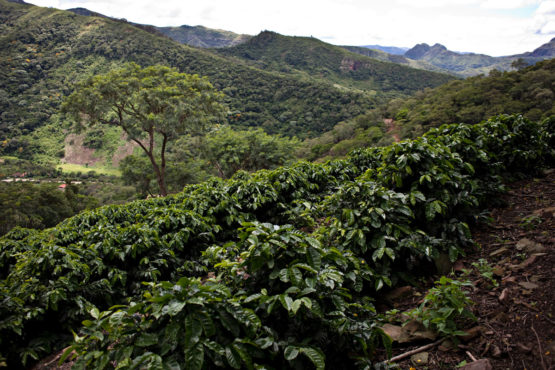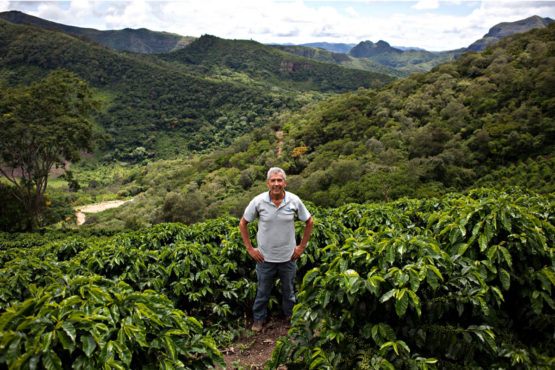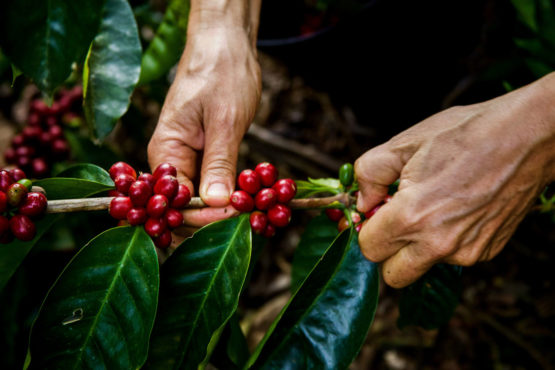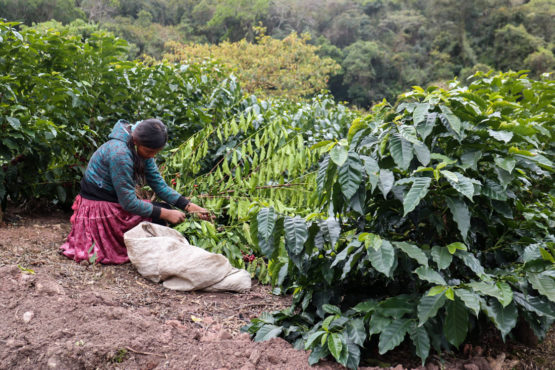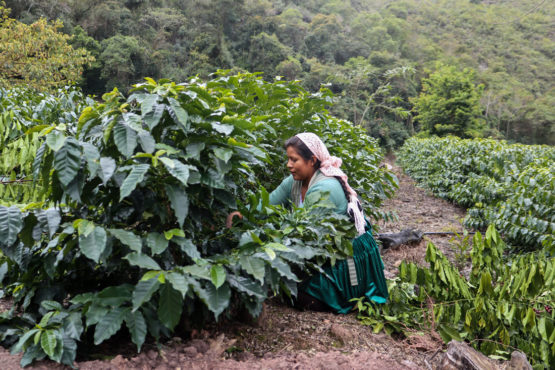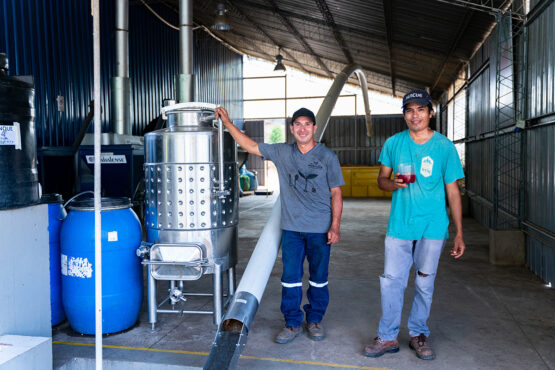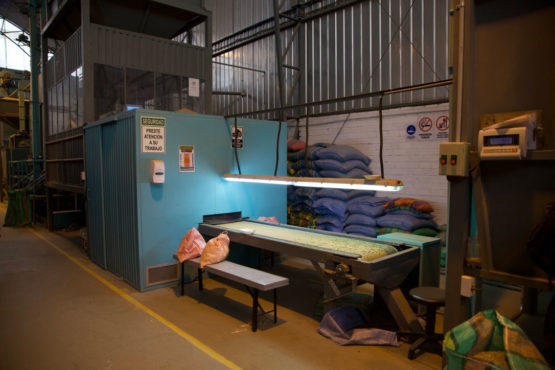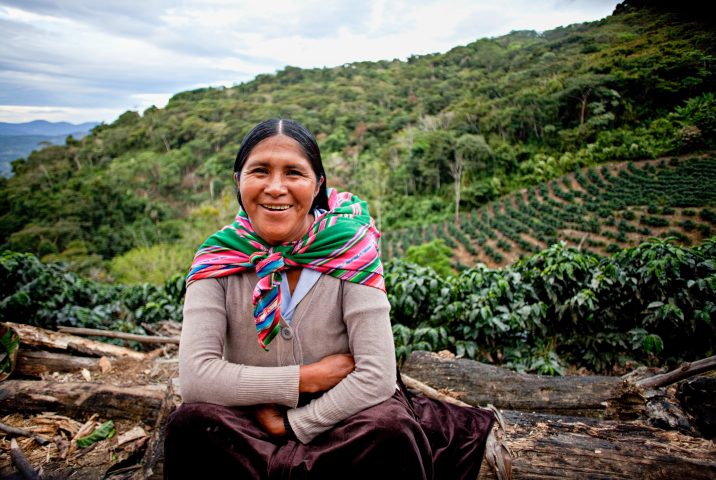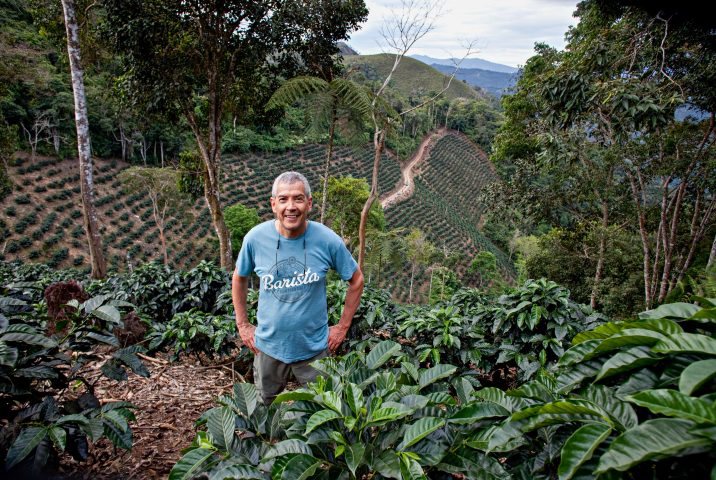El Fuerte
Bright green apple acidity balanced by sugarcane sweetness and a silky body. Milk chocolate and vanilla on the finish.
This washed Caturra lot comes from El Fuerte, one of four farms owned and operated by the Rodríguez family in Bolivia’s Samaipata region.
Samaipata is a relatively new coffee growing region located in the eastern department of Santa Cruz, at the foot of the Bolivian Andes. The Rodríguez family, who also own the exporting business Agricafe Bolivia, first established their business in the traditional coffee growing region of Caranavi, where they currently operate eight farms and a wet mill. In 2012 they expanded to the region of Samaipata, which is historically known for producing food crops like fruit and vegetables.
This was risky move – coffee had never been planted here before – however, Pedro recognised the region had the right conditions to produce exceptional quality coffee, with high elevations, nutrient-rich soil and a similar climate to Caranavi’s (with the main difference being Samaipata being a little less tropical and is also drier than Caranavi). After their success in growing exceptional coffee at their first farm in the region, El Fuerte, the Rodríguez family have continued investing more heavily in Samaipata, planting three more farms and building a wet mill to process the coffee.
Samaipata means ‘Rest of the Heights’, and is a small, picturesque town. A scenic road that runs along a beautiful river leads to the town centre, attracting Bolivians and tourists alike. It is a popular base for nature walks and the World Heritage El Fuerte Andes ruins, after which the farm was named. The valley surrounding the town ranges between 1,600-1,800 meters above sea level, and has a fairly extreme climate. During the day the temperature is 25-30°C, dropping to as low as to 8-10°C during the night. This slows down the ripening of the coffee cherries, allowing the sugars of the fruit to concentrate in the flesh and bean, which in turn helps produce an incredibly sweet and complex coffee.
El Fuerte is 19.4 hectares in size and sits at 1,526 metres above sea level. The farm sits about 20km east of the town of Samaipata on the southern edge of the Amboro National Park, which is characterised by great diversity and biological richness, with plentiful forests, waterfalls and exotic birds. It also protects El Fuerte from strong winds and high temperatures, and the waterways in the valley help regulate the lower temperatures and keep frost away. Today, the farm is managed by Ángel Aguilera, who lives on the farm with his wife and family. Although it mostly produces Caturra, Ángel and Pedro have trialed several varieties on this farm, including Gesha, Pacamara, Batian and Bourbon.
HOW THIS COFFEE WAS PROCESSED
Ángel hires pickers from the Samaipata community to carefully handpick the coffee during the harvest. These pickers are trained to collect only the very ripest cherries, and multiple passes are made through the farm over the course of the harvest to ensure the coffee is picked at its prime. Selective picking is extremely important for special micro-lots like this one, to ensure the sweetest cup.
Pedro draws a lot of inspiration from the wine industry in his approach to coffee production, and is always innovating and trialling different processing techniques. After being inspected and weighed, the cherries for this particular lot were carefully sorted by weight using water, and floaters were removed. Following this, they were placed a conveyor belt and disinfected, in a similar process used for wine grapes. Once depulped, the wet parchment was fermented in the family’s brand new, custom-built stainless steel tanks for 48 hours.
The parchment was then was washed with fresh, clean water and carefully machine-dried using a ‘guardiola,’ a horizontal, rotating drum that gets rid of moisture by creating a warm, consistent flow of air around the coffee. Once the coffee was dry, it was transported to La Paz where it was rested before being milled at Agricafe’s dry mill, La Luna. At this state-of-the-art mill, the coffee was first hulled and sorted using machinery, and then by a team of workers who meticulously sorted the coffee again (this time by hand) under UV and natural light. The mill is one of the cleanest and most impressive we have seen – you can read more about it here.
WHAT’S IN A NAME
To the east of the city of Samaipata, there are the ruins of the ancient ceremonial site of El Fuerte de Samaipata. Finca El Fuerte, which is named after the Fort of Samaipata, was the first of the four farms the Rodríguez family planted in Samaipata. The fort is a Pre-Columbian archaeological site, unique in that it represents the legacies of Inca, Spanish and Chané cultures and is one of Samaipata’s main attractions.
